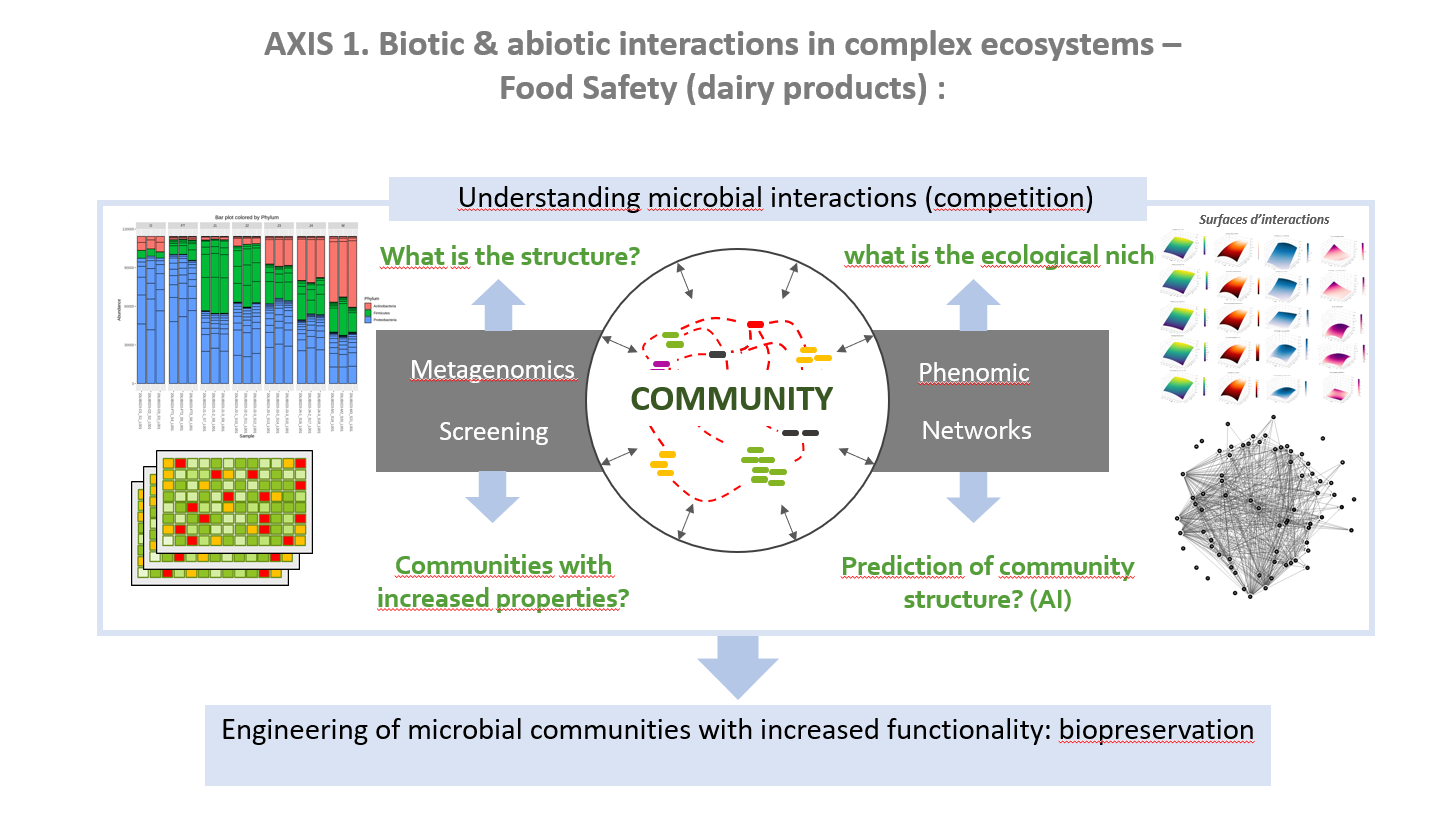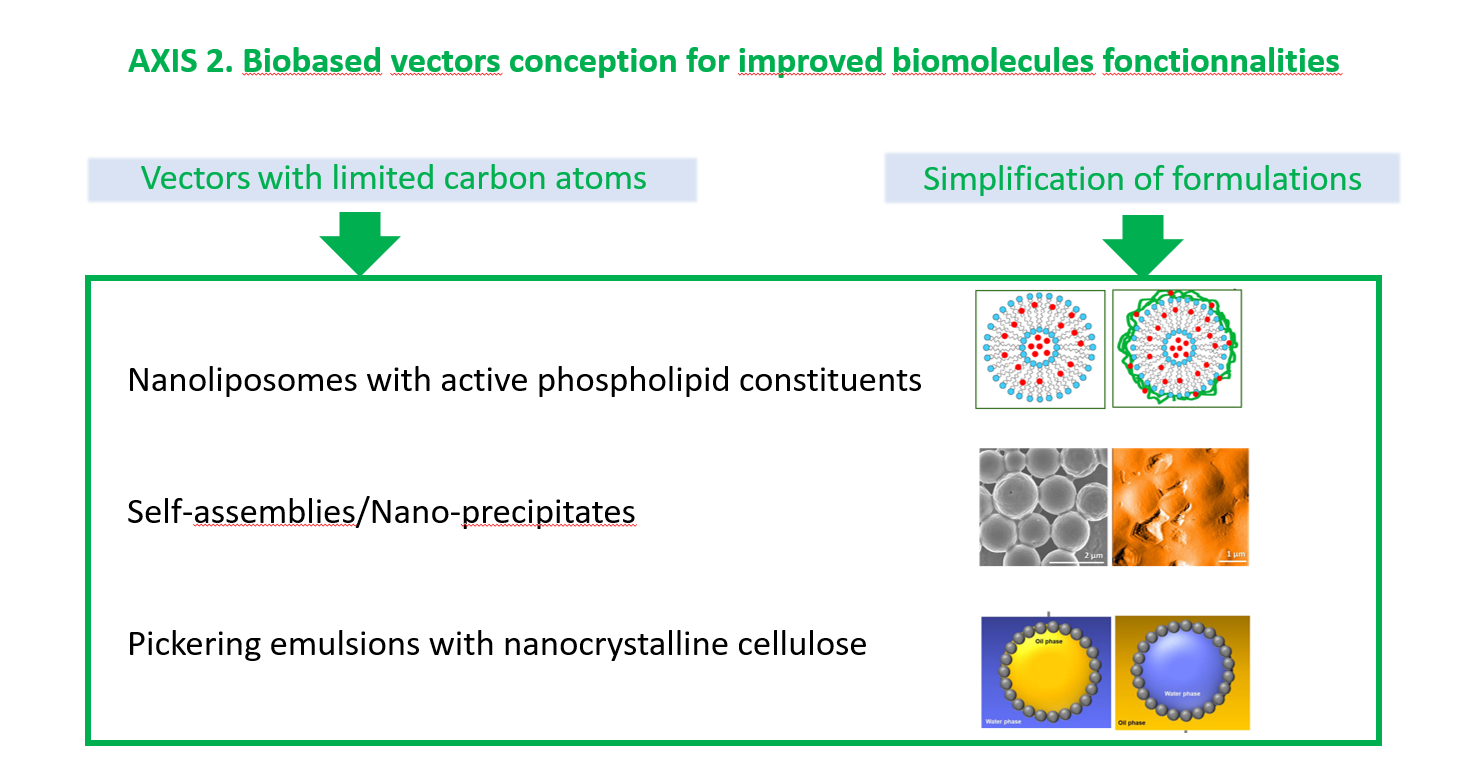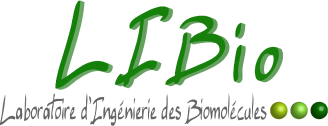Mean Topics
The scientific project of LIBio is to manage biotic and abiotic interactions of biobased systems in order to increase their functional properties. Our approach tends towards architectures with simplified formulation, with a limited number of atoms.
A holistic approach for the engineering of biobased systems will focus on matrices and on vectors. According to our expertise, 3 main systems are studied; (i) nanoliposomes; (ii) protein and polysaccharide matrices and micro/nano-capsules; (iii) bacterial communities.
In a global and interdependent way, LIBio's research work will consider the major societal expectations of food, nutrition, cosmetics and environment. The proposed project aims to include all of the research work carried out in a virtuous approach in terms of management of resources and means to achieve our scientific objectives. Building on the quality approach carried out for 13 years, LIBio has demonstrated its attachment and its desire to evolve in a more rigorous framework that respects its environment.
LIBio research staff form a unique multidisciplinary team divided into two research axes. The objective of the first axis aims to understand the complexity of biotic and abiotic interactions within ecosystems in a strategy of innovation and health security. Mastering these interactions must allow the emergence of enhanced functionalities within the food to be consumed.

The main objective of the second axis is the vectorization of biomolecules in colloidal systems: the creation of nanoliposomes active by the very nature of their phospholipid constituents is a representative example. The validation of these systems is based on the creation of controlled physiological environments allowing in vitro demonstration of the release and action of active biomolecules.



